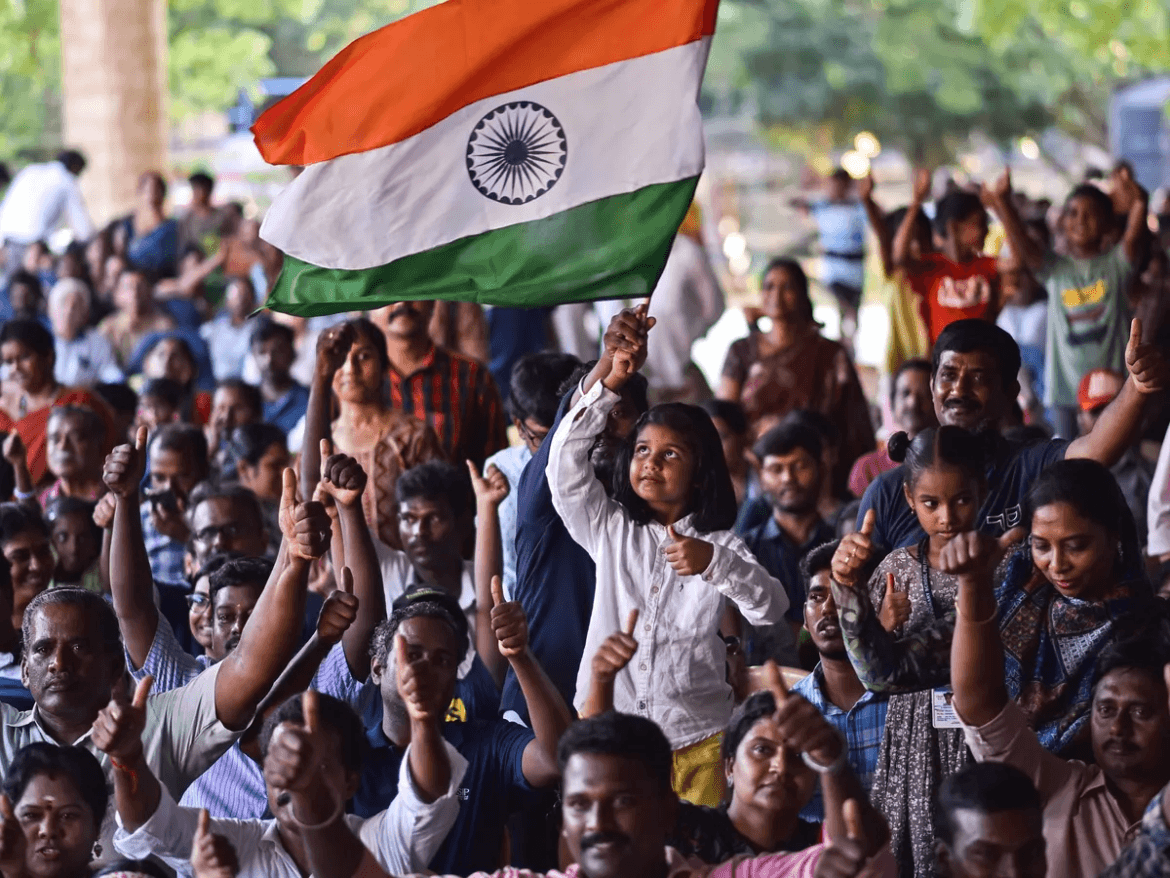AI Generated Summary
- As Jawaharlal Nehru eloquently put it in ‘Discovery of India,’ “Often, as I wandered from meeting to meeting, I spoke to my audience of this India of ours, of Hindustan and of Bharata, the old Sanskrit name derived from the mythical founder of the race.
- While the discussion about using Bharat as the sole name for our nation is once again in the spotlight, it’s crucial to understand the context, history, and significance of this dual nomenclature.
- So, if the government decides to use only Bharat for official purposes, it’s not a renaming of the country but a reminder of our rich heritage and a step towards embracing our ancient identity.
In a recent turn of events, the Congress party has ignited a conversation about whether India should officially be referred to as Bharat. This issue, however, is not a new one; it has deep historical roots dating back to the Constituent Assembly debates. While the discussion about using Bharat as the sole name for our nation is once again in the spotlight, it’s crucial to understand the context, history, and significance of this dual nomenclature.
The framers of our Constitution had a robust debate about this very issue. Article 1 of the Constitution itself recognizes both names, stating, “India, that is Bharat, is a Union of States.” This dual nomenclature was deliberately chosen for juridico-political purposes. It reflects the rich tapestry of India’s identity, embracing both its geographical and cultural aspects.
India, as a term, finds its origins in the Indus River and was popularized by Greek historians and later adopted by the British during their colonial rule. Bharat, on the other hand, has ancient roots and is mentioned in Hindu epics like the Mahabharata and Manusmriti. It represents not just a geographical entity but also embodies the cultural and historical legacy of the region.
Even Dravidian languages such as Tamil, Malayalam, and Telugu use the term Bharat to refer to our nation. In Hindi, the Constitution is referred to as ‘Bharat ka Samvidhan,’ and Article 1 reads, ‘Bharata arthat India, rajyon ka sangha hoga.’
This dual nomenclature is not merely a matter of semantics. It signifies the duality of India’s identity, recognizing the geographical entity of India while also celebrating its rich cultural heritage. As Jawaharlal Nehru eloquently put it in ‘Discovery of India,’ “Often, as I wandered from meeting to meeting, I spoke to my audience of this India of ours, of Hindustan and of Bharata, the old Sanskrit name derived from the mythical founder of the race.”
Interestingly, both names are legally recognized and appear on Indian passports. Bharat Ganarajya and Republic of India are both inscribed on these documents, emphasizing the dual identity that has become a part of our nation’s legal and cultural fabric.
The debate over using only Bharat as the official name of our country is not new. In 2012, a Congress MP presented a private member’s bill in the Rajya Sabha proposing this change. The idea of using Bharat as the primary name was also discussed during the Constituent Assembly debates.
On September 18, 1949, Constituent Assembly members debated the wording of Article 1. Some members, like Hari Vishnu Kamath and Hargovind Pant, advocated for using Bharat as the primary name. They argued that Bharat, rooted in ancient history and tradition, better encapsulated the essence of our nation.
Kamalapati Tripathi passionately argued that using Bharat as the primary name would be a reclaiming of our ancient identity after centuries of foreign rule. However, when the amendments were put to a vote, Article 1 remained ‘India, that is Bharat…’.
So, why did the framers choose to use both Bharat and India? The answer lies in the historical context. The Constitution was being drafted in the immediate aftermath of Partition, a time of great uncertainty and communal strife. The dual identity of ‘India, that is Bharat’ was chosen to ensure inclusivity and stability in the newborn nation. It was a way of recognizing the diverse cultural and historical heritage of the country.
In her research paper, Catherine Clementin-Ojha notes that this decision may have been made to assure minorities that the country would not be excessively Hinduized. It was a pragmatic choice to preserve unity and harmony in a fragile post-Partition India.
So, if the government decides to use only Bharat for official purposes, it’s not a renaming of the country but a reminder of our rich heritage and a step towards embracing our ancient identity. India or Bharat, both names reflect the multifaceted nature of our nation, and the debate continues to symbolize the complexities of our collective identity.
The opinions expressed in this article are those of the author. They do not purport to reflect the opinions or views of Khalsa Vox or its members.




